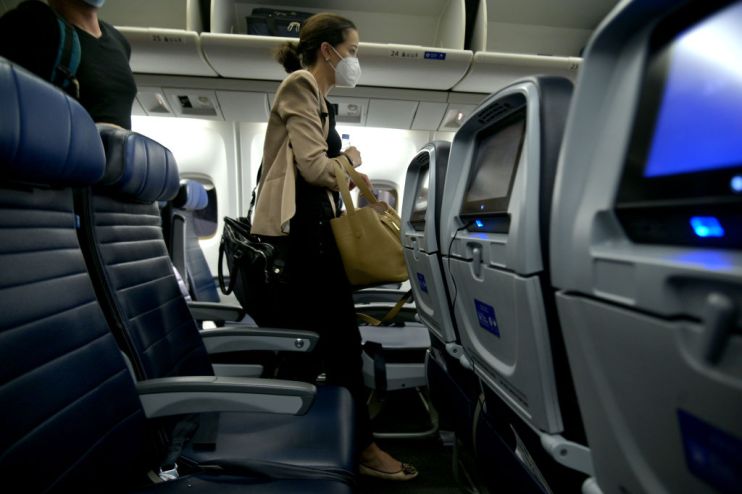Flying is at the same risk level for catching Covid as visiting the supermarket, Harvard research finds

The risk of catching Covid-19 during a flight are below other routine activities during the pandemic such as grocery shopping or going out to dinner, when using face coverings and taking other steps, Harvard researchers said today.
Its report found the risk level for catching Covid-19 during flights can be “reduced to very low levels through the combination of layered infection control measures.”
The report found making masks mandatory, airlines increasing cleaning and getting rid of the mad scramble of boarding and leaving the aircraft, “and with millions of passenger hours flown, there has been little evidence to date of onboard disease transmission.”
However, risks remain that contagious pre- or asymptomatic people could be unaware and opt to fly.
The report, which was funded by aviation lobby group Airlines for America and a consortium of industry manufacturers and airport operators.
Airlines across the globe have posted huge losses this year as demand for business and leisure travel dries up.
It follows a report that Tube travel in London was also deemed safe, after TfL enlisted Imperial College London to carry out ongoing testing for Covid across the Tube and bus network.
Travel, particularly commuting for work, is an activity many are still shunning for fear of catching the virus.
Mitigation actions
The Aviation Public Health Initiative team at Harvard recommended strategies to mitigate transmission risk on aircraft, during boarding and exiting.
The report noted aircraft are equipped with ventilation systems that refresh cabin air on average every two to three minutes and removing more than 99% of particles of the size that cause SARS-CoV-2.
Researchers also found face masks significantly reduce risks of disease transmission during the Covid-19 crisis.
Airlines have mandated masks, added new cleaning and implemented protocols to manage boarding and deplaning.
Similar research
The US Centers for Disease Control and Prevention this month issued a “strong recommendation” that all passengers and employees on airplanes and in airports should wear masks to prevent the spread of COVID-19.
The study echoes a US Defense Department study released earlier this month that found the risk of exposure to the coronavirus on flights is very low.
When a seated passenger is wearing a mask, an average 0.003% of air particles within the breathing zone around a person’s head are infectious, even when every seat is occupied, it found.